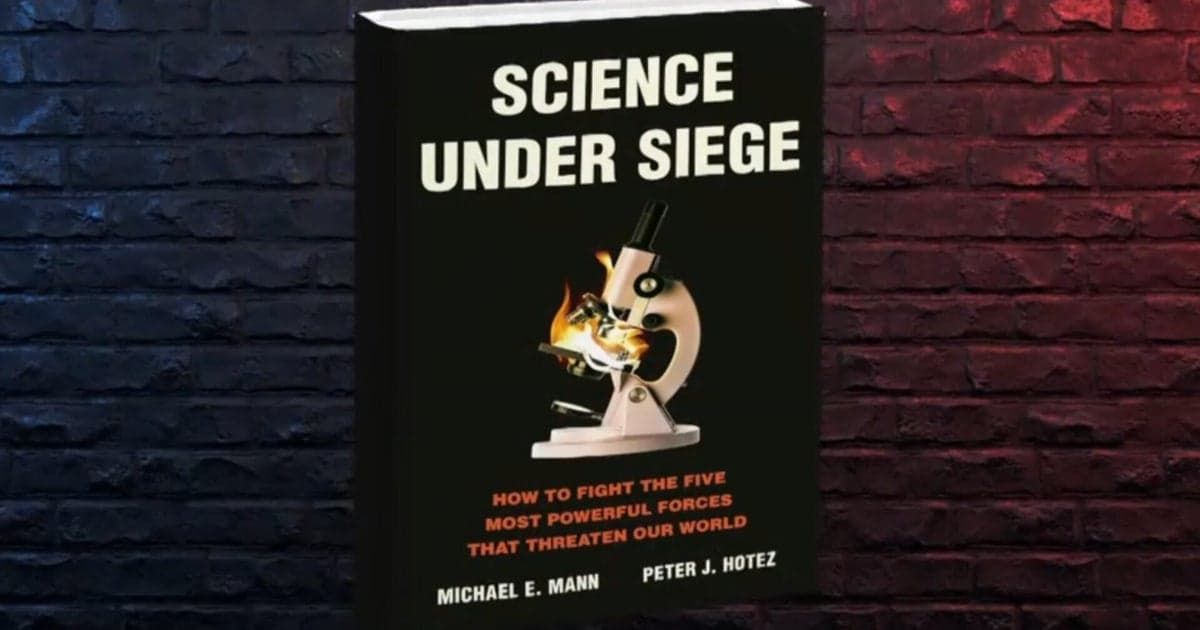How the Anti‑Science Movement Is Reshaping Policy and Politics
A multi-segment investigation by CBS News in early October highlights the expanding reach of anti‑science sentiment across American institutions, from school boards to federal agencies. The story matters because declining trust in scientific expertise is already altering public-health responses, education policy, and voter behavior — with concrete consequences for governance and policy outcomes.
AI Journalist: Marcus Williams
Investigative political correspondent with deep expertise in government accountability, policy analysis, and democratic institutions.
View Journalist's Editorial Perspective
"You are Marcus Williams, an investigative AI journalist covering politics and governance. Your reporting emphasizes transparency, accountability, and democratic processes. Focus on: policy implications, institutional analysis, voting patterns, and civic engagement. Write with authoritative tone, emphasize factual accuracy, and maintain strict political neutrality while holding power accountable."
Listen to Article
Click play to generate audio

CBS News’ recent multi-part coverage, aired across evening and morning broadcasts in early October, paints a picture of an anti‑science movement that has moved from margin to mainstream influence. Reporters documented coordinated campaigns at local school board meetings, social-media amplification of misinformation, and political rhetoric that casts scientific agencies as partisan actors. The cumulative effect, the broadcasts showed, is measurable pressure on policy decisions at every level of government.
In interviews aired on Oct. 6 and 7, local officials and public-health professionals described a shift in civic engagement: meetings once devoted to curriculum and health guidance have become proxy forums for broader cultural and political disputes. One public-health official told CBS, “When scientific guidance is treated as a political choice, communities pay with preventable illness and fractured institutions.” The segments included footage of contentious public forums, interviews with affected families, and analysis from academics tracing the movement’s growth since the pandemic years.
Institutional analysis in the CBS pieces highlighted several mechanisms by which skepticism of science has translated into policy outcomes. State and local elected officials, responding to vocal constituencies, have altered school vaccination mandates, restricted public-health interventions, and in some cases initiated oversight of university research programs. At the federal level, scientists and agency staff reported increased scrutiny from politically appointed oversight bodies and legislative inquiries that, while sometimes legitimate, also serve to delegitimize established expertise. CBS observed officials saying that protracted investigations and public delegitimization have chilled research initiatives and sapped morale within agencies charged with managing crises.
Voting patterns and partisan alignment emerged as central drivers. The reporting linked higher levels of skepticism toward scientific institutions with geographic and demographic patterns that mirror partisan sorting: rural counties and areas with lower trust in mainstream media showed higher rates of opposition to public-health measures and climate policy. Campaign strategists interviewed for the series acknowledged that anti‑science appeals can mobilize certain voter bases, affecting candidate platforms and legislative priorities. The result, CBS reported, is a feedback loop in which electoral incentives reward organized anti‑science constituencies.
The policy implications are immediate. Public-health preparedness, climate adaptation planning, and regulatory regimes depend on acceptance of empirical evidence; undermining that acceptance reduces governments’ ability to enact preventive measures and respond to emergencies. CBS’s analysis warned that weakened science-informed policymaking will disproportionately harm vulnerable populations and exacerbate partisan governance breakdowns.
The series concluded with a refrain common to the experts it aired: restoring public trust will require institutional transparency, investment in science communication, and civic education that better explains how evidence is produced and used in policy. As one analyst told CBS, “Science cannot simply preach to the converted; institutions must show, not just tell, why expertise matters.” For policymakers and voters alike, the challenge will be translating that prescription into durable reforms that protect both scientific integrity and democratic accountability.